We idled away a hot and humid Sunday afternoon at the Newtown Dendy to see ‘Arrival.’
First contact with aliens is a gold standard in science fiction. Many examples are shoot ‘em ups from ‘The War of the Worlds’ to ‘Independence Day’ and their kind. Nothing more will be said about these sort.
Before going to ‘Arrival’ I checked an on-line trailer to see if it met our preliminary standards, little or no CGI and little or no shoot ‘em up. CGI is Computer-Generated Images, which are a fatal virus in most movies these days, an easy substitute for thought. It passed these two tests which rule out most of the dross from the dream factory.
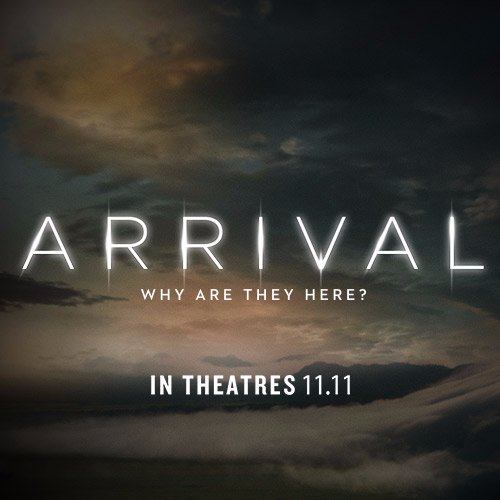
Off we went. What’s to like?
First and foremost its lead and star is a woman, who is neither glamorous nor trying to be a man. Amy Adams plays a skilled linguist named Dr Louise Banks. What she does is listen and think. That is a tough ask for Hollywood: thinking.
The usual currency for thought is the full face close up with wrinkled frontal lobes, but we get little of that here. Instead we get a lot of flashbacks, flash forwards, or flash sideways. I am not sure which, and will return to this point below. Adams does it well, and carries virtually every scene, certainly every scene worth watching.
The movie has pace but it is in no hurry. There is movement but not those crazy camera cuts loved by action directors who have never been in action themselves.
There is an intellectual puzzle — how to communicate with these aliens, who are very alien — placed in a high-pressure context.
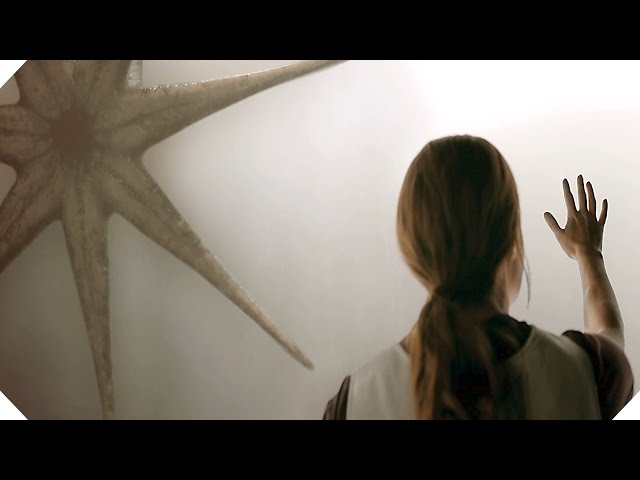
We loved all those alien zeros with their minute differences.
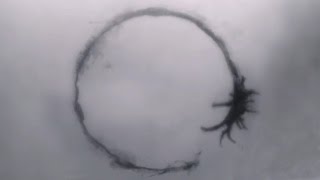
They were incomprehensible. That is the mystery. What a relief from the NRA-approved Hollywood films, made by bleeding heart liberals, where all solutions lie in a gunsight. Bam! See any of the recent Star Trek movies. Incomprehensible is better than splat.
In the original ‘The Day the Earth Stood Still’ (1951 [and 2008]) Patricia Neal had to say ‘Gort, Klaatu barada nicto.’ It worked. Whew!
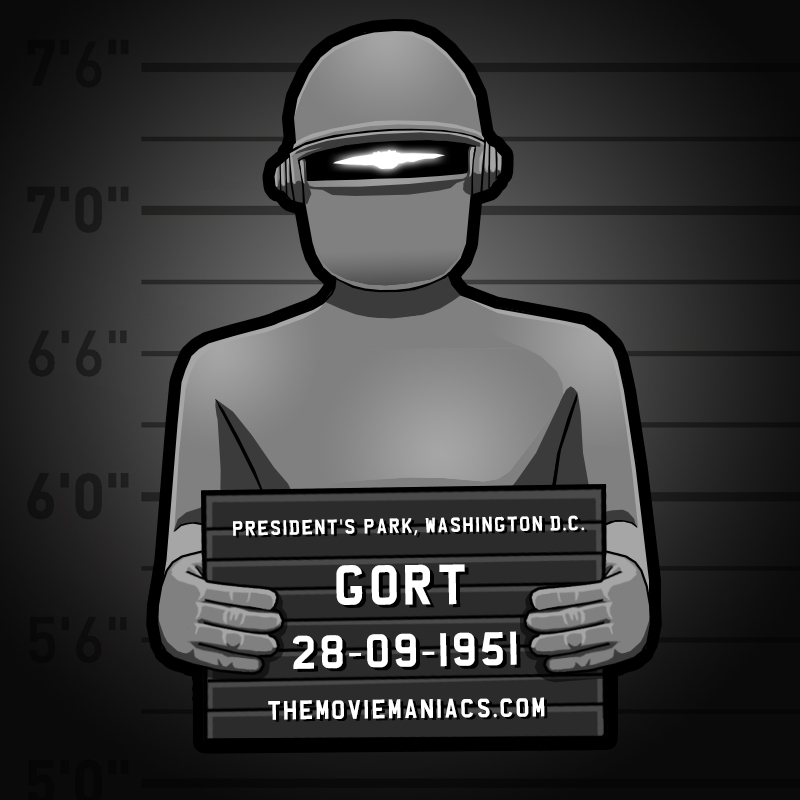 Gort.
Gort.
To do that she had to get to the right place passed the guards, overcome her own fears for herself and her child, and remember the incomprehensible message, and deliver it by rote to the scary robot. That was hard. Especially when his light went on. See above.
Dr Banks’s mission is infinitely harder. With all the same fears that Neal had, she has to figure our first what it means and then how to say it in zeroes. That is some tough exam. It is even more difficult than understanding something said by the Cheeto President-elect.
The biggest theme is time’s arrow which seems to be the governing narrative.
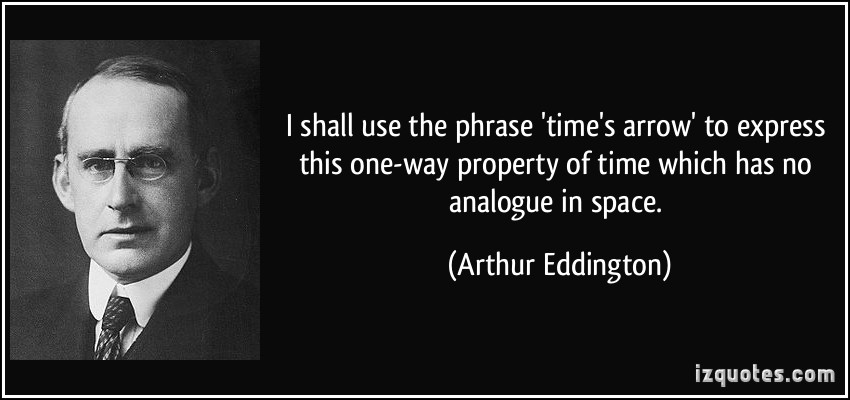
However, neither of the professional reviews I read from the ‘New York Times’ or ‘Sight & Sound’ mention it. All the flashes, back, front, side, seem to be about the simultaneity of time about which we might find out more in a sequel three thousand years later. (To get the point, see the movie.)
I also liked the understated Forest Whitaker for whom dealing with aliens is another day at the office. Indeed, he is almost catatonic. Of course, it is unlikely a mere colonel would have command of such a situation, though most generals would try to avoid the likely career-ending duty. The massive overkill of the U.S. response rings all too true. The motto of the Pentagon seems to be ‘Nuke the jaywalkers!’
Not so likeable were these things.
The dark cinematography defeated some of the exercise. I never did get a good look at Whitaker or anyone else. I expect it will be even more difficult on DVD.
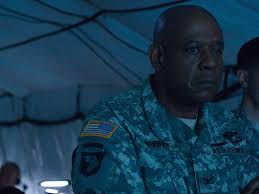 See what I mean?
See what I mean?
The helicopter landing at the start is gratuitous, distracting, and unbelievable. The helicopter is seldom the fastest way to travel because its airspeed is nothing special, especially when in civilian airspace full of other aircraft. The noise distracts from the dialogue. It is unbelievable that a pilot would land in a wooded residential area at night.
‘They have to see me,’ Dr Banks says ripping off her Hazard Suit (coloured to remind us of ‘Space Odyssey’ I suppose) mask for no discernible reason than that its time to get that Hollywood star our of the glare of the plastic mask.

That the hero is bold where others hesitate is a tired trope trotted out here several times. Cemeteries are full of such bold wanna be heroes who never made it to celluloid fame.
The nicknames ‘Abbot and Costello’ come from nowhere and went right back there. While we silverbacks got it, did anyone else, or have these two execrable comedians been resuscitated? I hope not. Unless it referred to the two Australian politicians Tony and Peter.
The screenplay has its share of clichés. Top choice is the Chinese general who has mastered McKinsey-speak when he says that Dr Banks ‘reached out to him.’ I have heard that too many times from cliché-speakers who did the training course. At least he did not insert a meaningless ‘actually’ in his remark. The scene is good and the point is part of the mystery but all of that is deflated by this McKinseyism. The air went right out.
As expected, there is a hot headed soldier, though here the idiot is a working stiff who acts on his own with a few buddies, where in reality it would be an educated and overpaid general in D.C. who wants to blow something up to get another star. Think Sterling Hayden from’ Dr Strangelove’ (1964) and you have the reality of General Curtis LeMay, a one time vice-presidential contender. The aside with Russ Limbaugh, the most shocking of jocks, was perfect but added nothing here.
If the pointless tracking shots, and empty rooms were cut, we could lose thirty minutes and not notice it. It is too long and indeed the longer it goes, the less the tension. A slow leak is still a leak.
I have to enter a plea for the chain of command. In this movie a Chinese general acts without the authority of the Communist Party. Never. All those purges Mao unleashed were partly aimed at cowing the army and keeping under the thumb of the party where it still is. Nor would the Director of the CIA call the shots as rendered here. There is a president to do that. Gulp.
The director, by the way, is Canadian Denis Villeneuve who has many other credits that I have not seen.
 Denis Villeneuve
Denis Villeneuve
Seeing this reminded us of the other First Contact movies. Chief among them is ‘The Day the Earth Stood Still’ as mentioned above in which a passive alien ambassador is murdered by a trigger happy grunt to the cheers of Russ Limbaugh and his kind. Then there was Jodie Foster in ‘Contact (1997).’ A cut above the mill, this one is for its intelligent screen play. In a class by itself is ‘Close Encounters of the Third Kind (1977).’ As is ‘Paul (2011),’ though this not really first contact it is unexpected contact. There are also many instances in the Star Trek canon before the franchise descended into CGI shoot ‘em ups. Some of these are very thoughtful when thinking was still valued out west.
Skip to content
